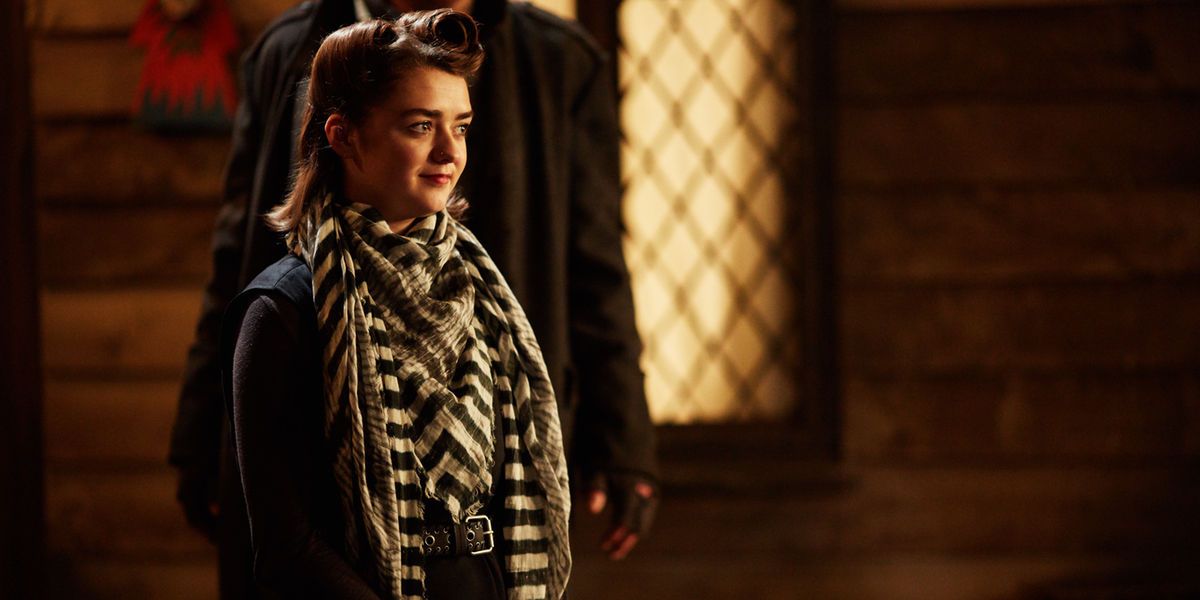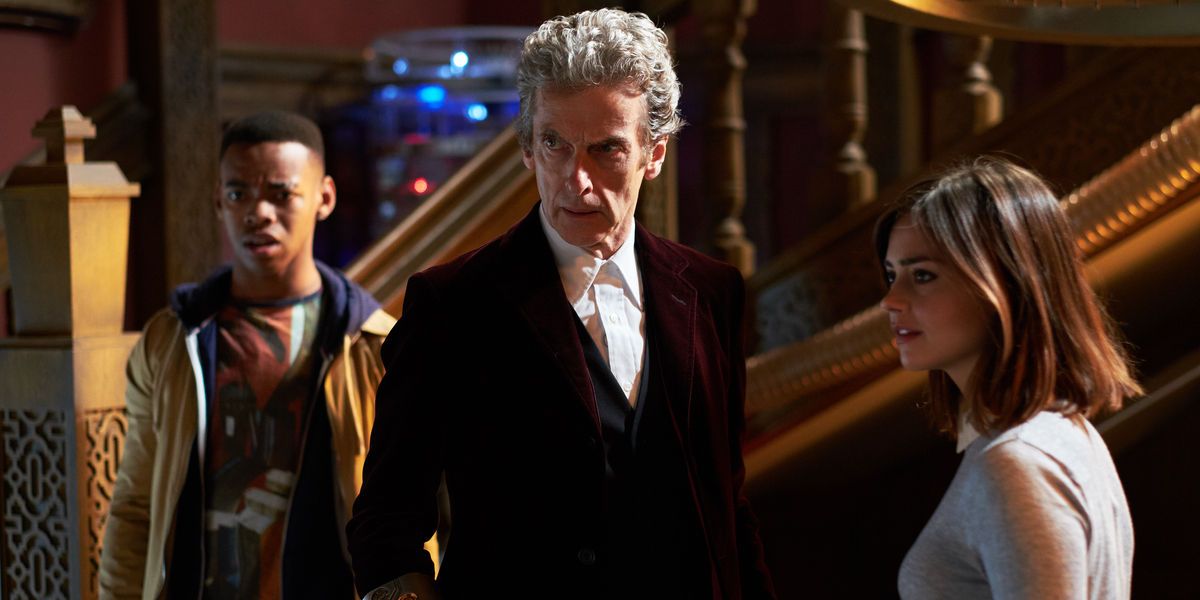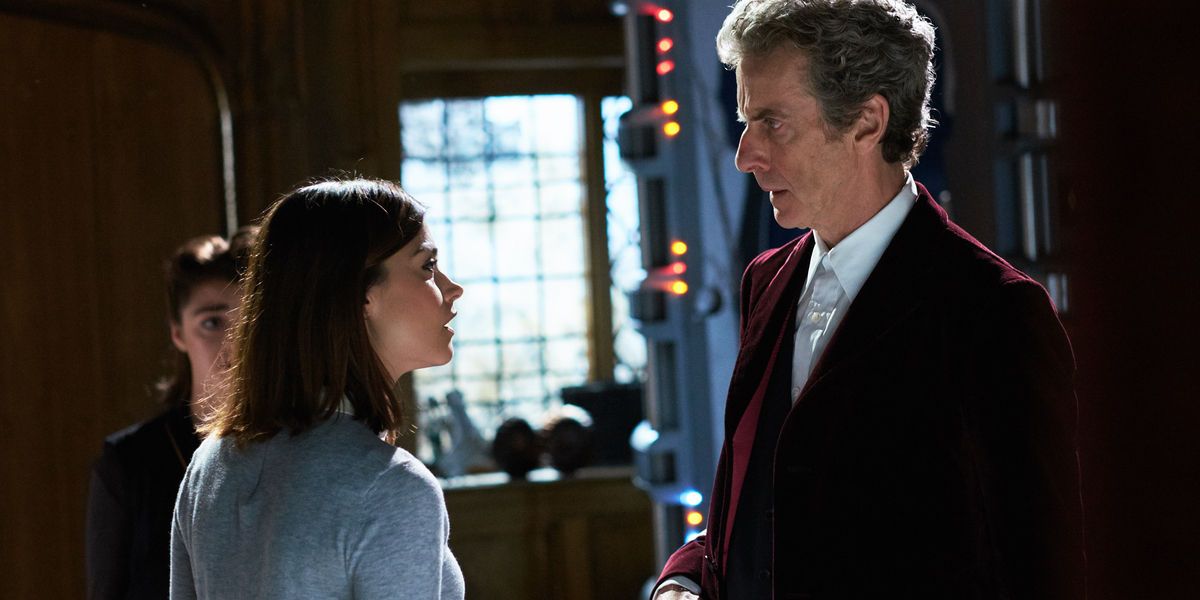[This is a review of Doctor Who season 9, episode 10. There will be SPOILERS.]
-
When an episode of television ends the way 'Face the Raven' does, the importance of the hour hitting all the right notes increases exponentially. The death of a major character – especially when they are, like Clara Oswald, the Doctor's companion – ideally comes in two flavors: 1) surprise, and 2) expected, but still emotionally resonant. Naturally, there are plenty of variations on those ideal scenarios, but it is always gratifying – even when, or especially because, the feeling of heartbreak is so strong – for the event to echo beyond the immediate shock of registering the loss of a prominent and well-liked character such as Clara.
It is even more impressive, then, that in delivering an episode already weighted and made significant by the death of the Doctor's companion, Doctor Who so successfully ties the event to the main ideas and themes that have, for the most part, been an integral part of the season's story. From the get-go, season 9 has been concerned with an important aspect of the Doctor's personality and his behavior, something that is inevitable given the way in which he experiences life on a grand scale and in a peculiar, non-linear fashion. In other words: the Doctor has had a tendency to look at things from a more distant perspective, often weighing the life of one person against many. It was an element that popped up time and time again throughout the season, at least as frequently, but perhaps not as blatantly, as last season's inquiry into whether or not the Doctor was a good man.
The emotional distance this iteration of the Doctor sometimes exhibits seems to heighten the fact that he's an alien, making the presence of a companion something of a necessity. So, when a character like Clara begins to take on more and more aspects of the Doctor's personality, there's cause for concern, but there's also an opportunity for the series to explore the progression of a character that has, at times, felt somewhat indistinct.
It is perhaps fitting, then, that Clara's death would come as an unintended but obvious consequence of the character's increasingly obvious adoption of the Doctor's tendency to play fast and loose in life-and-death scenarios – especially when the life on the line is hers. Clara's attempt to outwit an element as seemingly incomprehensible as a quantum shade, by interpreting its rules, specifically as they pertained to Rigsy and the individual responsible for sentencing him to death by quantum shade in the first place: Ashildir.
And for an episode that walks such a fine line in terms of overdoing its characters' responses to their situation and making the situation emotionally significant, the hour delivers a terrific example of just how fine its touch can be. Clara's death is, basically, a result of her misinterpretation of the rules for the situation she was in. By opting to take the unjust sentence handed down to Rigsy, her thinking is sound in that she is removing the risk from someone who ostensibly can't act – at least not as she could in the narrative sense – and applying it to someone who, as she understands it, has more responsibility and freedom to move around restrictions, no matter how cosmic or magical they appear to be.
But that's not necessarily the display that makes 'Face the Raven' work. Instead, it's the manner in which the episode handles the notion of responsibility for Clara's fate. Yes, it is ultimately a mistake on her behalf that ends her life, but the episode is measured in how it responds to her actions both before and after it becomes clear there is nothing the Doctor or Ashildir can do to fix the situation. In circumstances such as these, there is a tendency to place blame – which the Doctor does when he unleashes a tidal wave of threats against Ashildir – but the script mercifully sidesteps the notion of placing absolute blame on anyone – Clara included. That can be difficult considering the character's increased willingness to take on risk, especially when it put her life in danger.
That makes the opening sequence, in which the Doctor and Clara characteristically oddly unfazed, almost giddy at recalling off-screen events that likely carried with them an incredible amount of risk and, certainly, Clara's exuberance at hanging out of the TARDIS as it sailed over London, particularly meaningful in terms of tracing the character's fateful decision. But the episode is careful not to make it seems as though it is condemning Clara for her actions in the same way it is careful not to make it seem as though she was acting out of some innate sense of nobility by making the ultimate sacrifice for Rigsy. The latter is especially important, given the time spent focusing on Rigsy's infant daughter.
Instead, the hour, like Clara, makes the wise decision to face her death and to apply a much meaning to it as possible. What started out as a game of life-and-death becomes suddenly very real and unavoidable, and the episode does well by everyone involved, giving Clara a memorable exit (though it's debatable as to whether or not this will be the last time we'll actually see Jenna Coleman), while at the same time demonstrating her importance both to the Doctor as a character and to the narrative in terms of the season's overarching themes and ideas.
For her part, Ashildir is just doing what the Doctor has several times this season: pitting the life of one person against something much larger – i.e. the refugee aliens on the trap street. In doing so, she becomes a reminder of what the Doctor could become were it not for the presence of his companions – a point made more evident by both her unnaturally long life and the fact that she's adopted a title (the Mayor) in lieu of a name. Ashildir, too, is playing a game of life-and-death, one that comes with great risk to those around her. But here, we see the flipside of what the game ultimately means.
Death has meaning. That meaning can sometimes be even greater when it's one life weighed against many. It feels natural that after nine episodes of exploring this point (more or less), Doctor Who would use Jenna Coleman's departure to give it narrative significance. There is still more of the season to come that will no doubt examine the consequences of Clara's death, but even with that certainty, 'Face the Raven' makes sure to give the moment the time it deserves and to emphasize Clara as an individual over what she means to the Doctor. Too often, the level of pain the survivor is depicted suffering is the shorthand used to apply significance to another character's death. Here, Clara verbalizes her desire to have a meaningful death outside its obvious impact on the Doctor or even Rigsy, making them promise not to use it as an excuse for revenge or a reason to feel guilt. That deliberate attention paid to a single character makes her impact on the series, as well as her departure, something worth remembering.
-
Doctor Who continues next Saturday with 'Heaven Sent' @9pm on BBC America. Check out a preview below:
Photos: BBC Worldwide Limited




